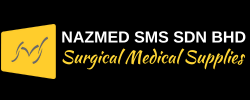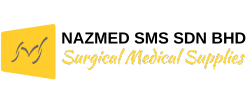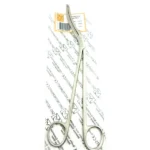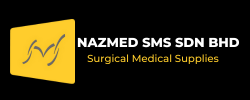Properly caring for surgical instruments is essential to ensure their longevity, functionality, and, most importantly, patient safety. Whether you’re a healthcare professional, a surgical technician, or simply someone responsible for maintaining these critical tools, here are some essential tips on how to care for your surgical instruments brought to you by NAZMED SMS (Surgical Medical Supplies):
- Cleaning: After each use, immediately clean surgical instruments thoroughly to prevent biofilm buildup and corrosion. Use a soft brush or a designated cleaning device, such as an ultrasonic cleaner, to reach crevices and remove debris. Always follow manufacturer guidelines for cleaning solutions and techniques.
- Rinsing and Drying: After cleaning, rinse the instruments with distilled water to remove any remaining cleaning agents. Properly drying the instruments is crucial to prevent rust. Ensure thorough drying by using clean, lint-free towels or an autoclave drying cycle.
- Lubrication: Regularly lubricate hinged and moving parts with a high-quality surgical instrument lubricant. This prevents friction, maintains smooth movement, and extends the life of the instruments.
- Sterilization: Instruments must undergo proper sterilization before each use. Follow recommended sterilization methods, such as autoclaving, and monitor autoclave cycles for effectiveness. Store sterilized instruments in a clean, dry, and dust-free environment.
- Storage: Store surgical instruments in a designated, clean, and dry area. Use specialized instrument trays or containers to keep them organized and protected from damage. Ensure they remain free from contact with other metals that could cause corrosion.
- Regular Inspection: Perform routine inspections for signs of wear, damage, or corrosion. Instruments with any issues should be repaired or replaced promptly to maintain precision and safety.
- Proper Handling: Always handle surgical instruments with care to avoid bending, chipping, or damaging delicate components. Follow ergonomic principles to minimize stress on the instruments during use.
- Instrument Identification: Clearly label all instruments for easy identification and tracking. This helps prevent mix-ups and ensures the correct instrument is used for each procedure.
- Regular Maintenance: Establish a maintenance schedule for sharpening cutting instruments, replacing worn parts, and inspecting for wear and tear. Consult the manufacturer’s recommendations for maintenance intervals.
- Education and Training: Ensure all healthcare professionals who use or handle surgical instruments receive proper training on instrument care and handling procedures. This education should be ongoing to keep everyone up-to-date with best practices.
- Documentation: Maintain detailed records of instrument usage, cleaning, maintenance, and repairs. This documentation can be invaluable for tracking instrument lifespan and compliance with regulatory requirements.
Caring for surgical instruments is an integral part of delivering safe and effective patient care. By following these guidelines, you can help extend the life of your instruments, reduce the risk of infections, and maintain the highest standards of surgical excellence. Always refer to manufacturer instructions and seek guidance from experts when in doubt about instrument care and maintenance.







4 Comments
Exploring the Hinged Forceps: What Are They Used For? - Smsindus
[…] Handling: The prowess of hinged forceps extends to the realm of tissue handling, where their delicate tips and secure grip prove invaluable. Whether in the intricate art of […]
How to Care for Instruments After Surgery: Essential Tips by Nazmed SMS Sdn Bhd - Surgical Medical Supplies
[…] Caring for surgical instruments after surgery is a critical aspect of patient safety and the efficient functioning of healthcare facilities. Proper cleaning, decontamination, and storage procedures are essential to ensure the instruments remain in pristine condition and can be safely used for future procedures. Surgical Medical Supplies – SMS is committed to providing high-quality medical supplies and equipment to support healthcare professionals in delivering exceptional patient care. […]
Exploring the Hinged Forceps: What Are They Used For? - Wiseability
[…] Handling: The prowess of hinged forceps extends to the realm of tissue handling, where their delicate tips and secure grip prove invaluable. Whether in the intricate art of […]
The Importance of Proper Maintenance and Sterilization of Surgical Instruments By Saqib Saeed Malik, Founder & CEO of Nazmed SMS Sdn Bhd - saqibsaeedmalik.com
[…] Proper maintenance and sterilization of surgical instruments are fundamental aspects of ensuring their effectiveness and longevity. At Nazmed SMS Sdn Bhd, we recognize the critical importance of these practices in maintaining the quality and safety of our surgical tools. […]